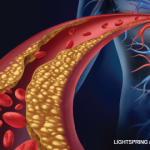At a median follow-up of 3.7 years, the authors found the incidence rate for nonfatal MI, nonfatal stroke or cardiovascular death in patients receiving 150 mg of canakinumab every three months was lower than that seen in the placebo group, independent of lipid-level lowering, a statistically significant finding (P=0.005).
Dr. Bathon is part of a team that has recently completed the TARGET RA trial, and she explained that the results of this study—which seeks to evaluate if rheumatoid arthritis DMARD and biologic therapies reduce vascular inflammation—should be available soon.
Myocardial microvascular dysfunction is evident in 10–30% of patients with rheumatoid arthritis without known cardiovascular disease.
Myocardial Inflammation
Dr. Bathon next discussed how a significant percentage of the increased risk of heart failure in patients with rheumatoid arthritis is not attributable to traditional cardiovascular risk factors or to ischemic heart disease. This implies that myocardial inflammation may potentially be a mechanism by which heart failure can occur in these patients.
In summarizing a wealth of data on this subject, Dr. Bathon noted that myocardial inflammation is: 1) evident in 20–40% of patients with rheumatoid arthritis without known cardiovascular disease, 2) seems to correlate with articular disease activity, and 3) may potentially decrease with therapies for rheumatoid arthritis, although this last possibility is based on data from a very small number of patients.
Myocardial microvascular dysfunction is evident in 10–30% of patients with rheumatoid arthritis without known cardiovascular disease and seems to be associated with increased serum levels of interleukin-6. The questions that remain on this subject include: Are myocarditis and microvascular dysfunction persistent or transient? Does myocarditis cause endothelial damage and microvascular dysfunction? Are these conditions reversible with DMARDs, steroids and other disease-modifying treatments?
In Sum
Although many questions remain to be answered on this and related topics, the audience listening to Dr. Bathon’s lecture could be sure of this: Their recognition of this important topic has been enhanced.
Jason Liebowitz, MD, completed his fellowship in rheumatology at Johns Hopkins University, Baltimore, where he also earned his medical degree. He is currently in practice with Skylands Medical Group, N.J.
References
- Maradit-Kremers H, Nicola PJ, Crowson CS, et al. Cardiovascular death in rheumatoid arthritis: A population-based study. Arthritis Rheum. 2005 Mar;52(3):722–732.
- Solomon DH, Reed GW, Kremer JM, et al. Disease activity in rheumatoid arthritis and the risk of cardiovascular events. Arthritis Rheumatol. 2015 Jun;67(6):1449–1455.
- Ridker PM, Everett BM, Thuren T, et al. Antiinflammatory therapy with canakinumab for atherosclerotic disease. N Engl J Med. 2017 Sep 21;377(12):1119–1131.

